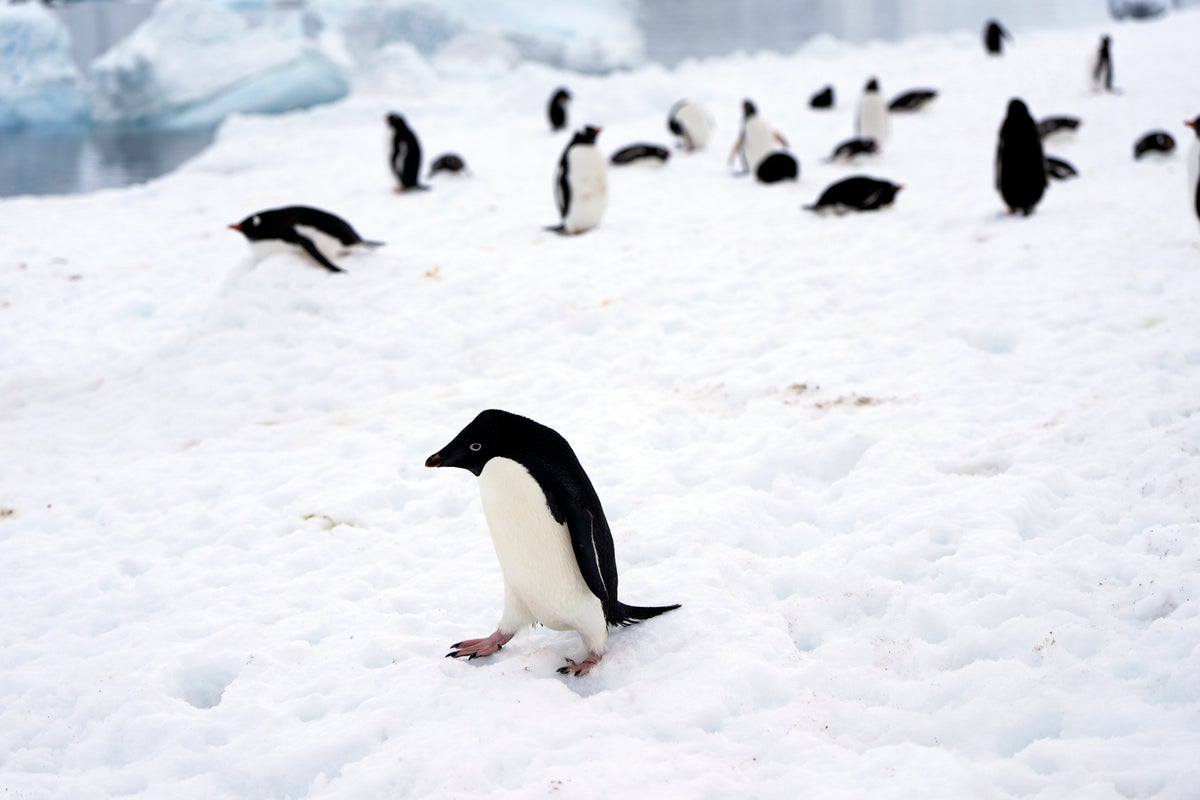
When U.N. Secretary-General Antonio Guterres visited Antarctica in November to highlight a planet in peril to set the stage for global climate talks in Dubai, he went to see an accelerating ice melt, not penguins.
But penguins were all around as Guterres and his entourage toured glaciers and visited Chile’s Eduardo Frei Air Force Base on King George Island.
They gathered by the hundreds to brood on nests, and stood in twos and threes at water’s edge in the soft light of an evening sun.
The gentoo penguins weren’t always together. One penguin waddles ashore, perhaps after successfully finding a meal in the frigid — but warming — ocean waters off the continent’s tip. Another dives, surely seeking the same.
The continent is both forbidding and beautiful, with craggy ice glowing an ethereal blue within. It’s fragile, too; scientists have marked huge melts in many of its protective ice shelves, and one recent study found that a big chunk of its ice is doomed to unavoidable melt even with big cutbacks in global emissions.
Guterres’ visit serves as a reminder to nations at the climate talks of what’s at stake as they negotiate how and whether the world should phase out fossil fuels to head off the worst consequences of planetary warming — a threat that could one day mean these penguins, and their footprints, are gone.







